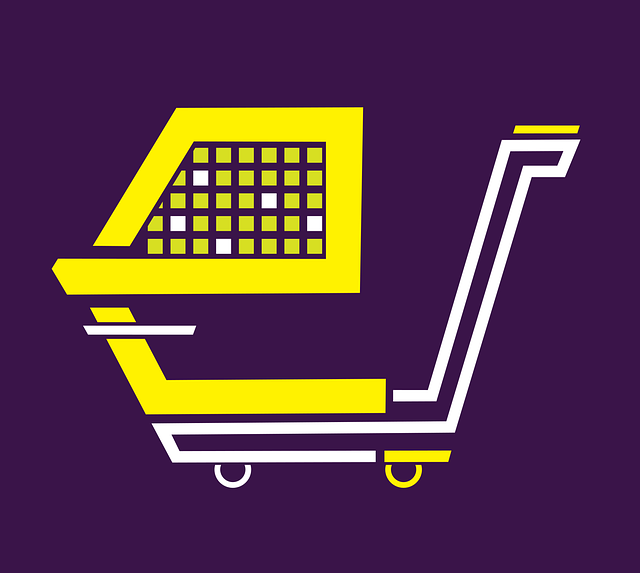Ecommerce chatbots have become advanced tools that leverage artificial intelligence to provide human-like interactions and assist potential customers in real-time, offering immediate support and enhancing the online shopping experience. These intelligent systems analyze customer behavior and preferences through machine learning algorithms to effectively qualify leads by assessing their likelihood of conversion. By engaging users with personalized conversations and detailed lead information collection, chatbots enable businesses to focus on the most promising leads, thereby optimizing sales and marketing efforts and improving customer satisfaction, which in turn contributes to higher conversion rates. These chatbots are not just about instant engagement; they also provide valuable insights into market trends and consumer behavior, which can be used to refine marketing strategies and maintain a competitive edge. Integrating with CRM systems allows for better lead management and targeted follow-ups, ensuring that online businesses can leverage the full potential of ecommerce chatbots to streamline their operations and enhance customer relationships.
In today’s digital marketplace, ecommerce businesses are leveraging AI chatbots not just for customer engagement but also as sophisticated lead qualification tools. This article delves into the transformative role of these intelligent bots in identifying and nurturing high-potential leads. We’ll explore their mechanics, key features that set them apart in ecommerce, and strategies to effectively integrate chatbots within your lead generation framework. With real-world examples illustrating success across various industries, this piece offers a comprehensive guide to harnessing AI chatbots for a more streamlined and efficient lead qualification process.
- Understanding Ecommerce Chatbots as Lead Qualification Tools
- The Mechanics of AI-Powered Chatbots in Lead Generation
- Key Features of Ecommerce Chatbots That Drive Lead Qualification
- Best Practices for Implementing Chatbots in Your Ecommerce Lead Qualification Strategy
- Case Studies: Successful Ecommerce Chatbot Applications for Lead Qualification
Understanding Ecommerce Chatbots as Lead Qualification Tools

Ecommerce chatbots have increasingly become sophisticated lead qualification tools, leveraging artificial intelligence to simulate human-like interactions with potential customers. These chatbots are designed to engage users in real-time, providing instant responses and guiding them through a shopping experience. By integrating advanced algorithms and machine learning techniques, ecommerce chatbots can analyze customer behavior, preferences, and buying signals to assess the quality of leads. This enables businesses to prioritize leads that are more likely to convert, thus optimizing their sales and marketing efforts. The ability to qualify leads efficiently helps in allocating resources effectively, ensuring that follow-up actions are targeted and personalized, ultimately enhancing customer satisfaction and increasing conversion rates within the ecommerce space.
Moreover, ecommerce chatbots are equipped with the capability to gather detailed information through interactive dialogues, which can be used to segment leads based on their level of interest or purchase intent. This data-driven approach allows for a more refined understanding of customer needs and expectations, enabling businesses to tailor their marketing strategies accordingly. Additionally, these chatbots can provide valuable insights into market trends and consumer behavior by analyzing the interactions they have with users. Such intelligence can inform decision-making processes, leading to improved product offerings and customer experiences in the competitive ecommerce landscape.
The Mechanics of AI-Powered Chatbots in Lead Generation

AI-powered chatbots have become pivotal tools in the realm of ecommerce, particularly for lead generation and qualification processes. These intelligent systems are designed to interact with potential customers through conversational interfaces, providing instant responses and guidance. They leverage natural language processing (NLP) and machine learning algorithms to understand user queries, analyze customer behavior, and deliver personalized experiences that can significantly enhance engagement. By integrating these chatbots into various platforms such as websites, social media, and messaging apps, businesses can capture leads effectively by initiating conversations with visitors who express interest in products or services.
The mechanics of an ecommerce chatbot involve a sophisticated setup where the system is trained on vast datasets to recognize patterns in customer interactions. It uses this training to predict consumer needs and respond appropriately, often directing users towards products that match their preferences or guiding them through a sales funnel. These chatbots can also collect valuable information from potential leads, such as contact details, preferences, and purchase intent, which can then be used for targeted marketing campaigns. By continuously learning from each interaction, these AI systems refine their approach to better qualify leads, thereby helping businesses prioritize follow-up efforts on the most promising prospects, ultimately driving sales and fostering customer relationships in the ecommerce space.
Key Features of Ecommerce Chatbots That Drive Lead Qualification

Ecommerce chatbots are integral tools for businesses looking to enhance their lead qualification process. These AI-driven systems are designed with a suite of key features that not only engage potential customers but also assess and categorize their interest levels efficiently. One such feature is the ability to provide instant, personalized responses to customer inquiries, which can significantly improve the shopping experience and increase the likelihood of conversion. By leveraging natural language processing, these chatbots understand user intent and deliver contextually relevant information, thereby guiding leads through the sales funnel more effectively.
Furthermore, ecommerce chatbots are equipped with advanced data analysis capabilities that allow them to qualify leads by analyzing user behavior and preferences. They can track interactions, product views, and even abandoned cart activities to identify high-potential customers. This data-driven approach enables businesses to prioritize leads that are more likely to result in sales, optimizing marketing efforts and resource allocation. Additionally, these chatbots can integrate seamlessly with CRM systems, providing a comprehensive view of the customer journey and enabling targeted follow-ups to nurture these leads into loyal customers. The integration of machine learning algorithms further enhances their effectiveness by continuously improving interactions based on past experiences, ensuring that ecommerce businesses can maintain a competitive edge in qualifying leads and driving conversions.
Best Practices for Implementing Chatbots in Your Ecommerce Lead Qualification Strategy

Incorporating an ecommerce chatbot into your lead qualification strategy can significantly enhance customer engagement and streamline the sales process. To maximize the effectiveness of your ecommerce chatbot, it’s crucial to design conversations that guide potential customers through a series of questions tailored to assess their interest and buying intent. These interactions should be intuitive, capturing essential information without causing friction or delay. For instance, implementing smart forms within the chatbot interface can help collect necessary data while maintaining a seamless user experience. Additionally, leveraging natural language processing capabilities allows your chatbot to understand and respond to a wide range of customer queries effectively. This understanding ensures that the chatbot can accurately discern the level of interest and prioritize leads that are more likely to convert.
Furthermore, to ensure your ecommerce chatbot remains an asset in your lead qualification efforts, regularly review and update the conversational scripts based on customer interactions and feedback. This iterative process will improve the chatbot’s performance over time, leading to better-qualified leads and higher conversion rates. It’s also important to integrate your chatbot with your CRM system for a cohesive approach to managing and nurturing these qualified leads. By doing so, you can provide timely follow-ups and personalized recommendations that move potential customers further down the sales funnel. Monitoring key performance indicators such as engagement rates, conversion rates, and customer satisfaction will inform continuous improvements to your chatbot strategy, ultimately driving better results for your ecommerce business.
Case Studies: Successful Ecommerce Chatbot Applications for Lead Qualification

In the realm of ecommerce, AI-driven chatbots have become pivotal tools for enhancing customer engagement and streamlining lead qualification processes. A notable case study is that of a leading home goods retailer who integrated an ecommerce chatbot to assist customers in real-time. This chatbot was designed with advanced natural language processing capabilities, enabling it to understand and respond to a wide array of customer queries effectively. By engaging shoppers through personalized conversations, the chatbot not only improved customer satisfaction but also successfully qualified leads by directing interested users towards high-conversion product categories. The chatbot’s intelligent questioning led to a significant increase in the rate of accurate lead qualification, ensuring that marketing efforts were targeted and resource allocation was optimized for maximum impact.
Another success story is from the fashion industry, where an ecommerce platform deployed a sophisticated AI chatbot to offer personal shopping assistance. The chatbot utilized machine learning algorithms to analyze past browsing and purchase history, thereby tailoring its interactions to each customer’s unique preferences and behaviors. This approach not only enhanced the shopping experience by providing highly relevant product recommendations but also enabled the retailer to efficiently qualify leads. By identifying potential high-value customers through their interaction patterns, the chatbot facilitated a more effective lead nurturing process, ultimately contributing to an uptick in sales conversions and customer lifetime value. These case studies underscore the transformative impact of ecommerce chatbots in refining lead qualification strategies and fostering deeper customer relationships.
Ecommerce businesses can significantly enhance their lead qualification processes by leveraging AI chatbots, a topic thoroughly explored in this article. We’ve delved into how these intelligent tools serve as effective filters for potential leads, automating interactions while gathering critical customer data. The mechanics of their operation and the key features that drive their success in lead qualification have been outlined, providing a clear understanding of their capabilities. Moreover, best practices for integrating chatbots into ecommerce strategies have been discussed to ensure businesses can maximize their potential. Case studies illustrate the tangible benefits and success stories of ecommerce businesses that have successfully implemented these tools. In conclusion, AI chatbots are not just a novelty but a pivotal asset in the realm of ecommerce, capable of streamlining lead qualification and fostering growth through data-driven insights and efficient customer engagement.
